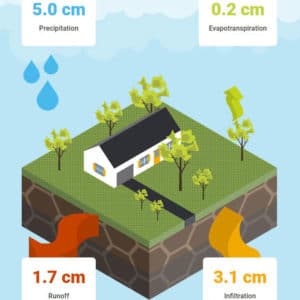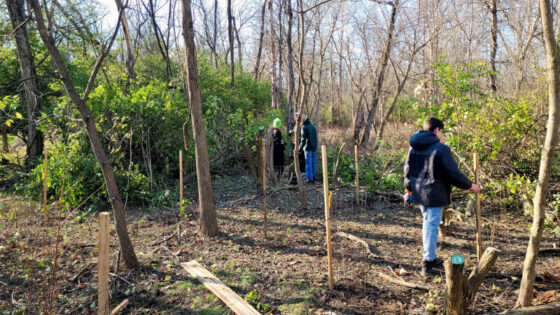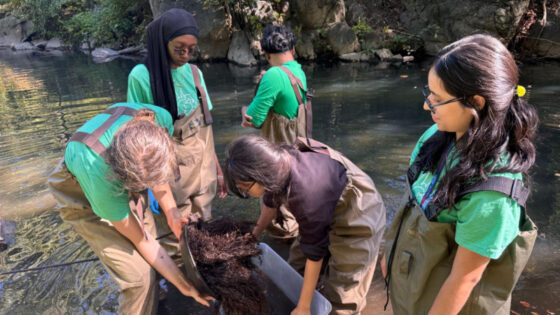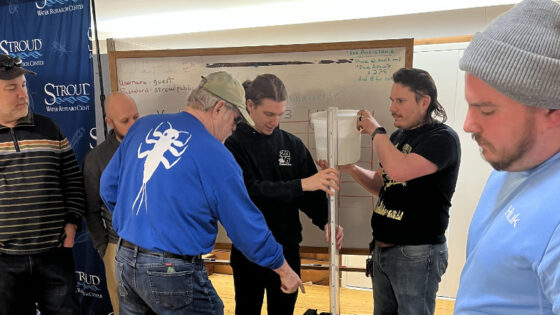 Stroud Water Research Center’s Model My Watershed web app was featured in the 2018 STEM for All Video Showcase funded by the National Science Foundation (NSF). The event was held online and highlighted innovation in science, technology, engineering, and math (STEM) education.
Stroud Water Research Center’s Model My Watershed web app was featured in the 2018 STEM for All Video Showcase funded by the National Science Foundation (NSF). The event was held online and highlighted innovation in science, technology, engineering, and math (STEM) education.
The theme for this year’s showcase was “Transforming the Educational Landscape.” Video presentations covered a wide range of topics including science, mathematics, computer science, engineering, cyberlearning, citizen science, maker spaces, mentoring, informal learning, professional development, research and evaluation, NGSS, and the Common Core. The videos highlighted initiatives for students of all ages — kindergarten through graduate school — as well as those for adult learners.
Teaching Environmental Sustainability – Model My Watershed
Steve Kerlin, Ph.D., director of education at Stroud Water Research Center, is featured in the “Watershed Modeling and Schoolyard Investigations” video presentation which highlights the Teaching Environmental Sustainability – Model My Watershed (TES-MMW) project. The overall goal of the project is to develop an interdisciplinary, place-based, problem-based, hands-on set of resources, models, and tools aligned to the Next Generation Science Standards to promote watershed stewardship, geospatial literacy, and systems thinking.
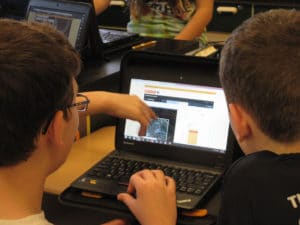
Model My Watershed shows students how land-use changes could alter local water quality and the flow of water through their watersheds.
The project includes Model My Watershed (MMW), a watershed-modeling web app that enables citizens, conservation practitioners, municipal decision-makers, educators, and students to:
- Analyze real land use and soil data in their neighborhoods and watersheds
- Model stormwater runoff and water-quality impacts using professional-grade models
- Compare how different conservation or development scenarios could modify runoff and water quality.
The related Runoff Simulation allows users to learn how land use and soil together determine whether rainfall infiltrates into the soil, runs off into streams, or is evaporated and transpired by plants. Teachers and students also use the Sensor Tag which connects to both Android and Apple mobile devices to investigate environmental conditions in their schoolyard.
The project includes a five-activity watershed curriculum and supplemental instructional resources, and also provided professional development for teachers in California, Colorado, Iowa, Kansas, Massachusetts, Missouri, Pennsylvania, and Virginia. Curricula and resources are available and customizable for the entire lower 48 U.S. states.
The TES-MMW project is a Stroud Center collaboration with Millersville University and Concord Consortium and was funded by NSF Awards #1418133, 1417527, and 1417722.
About the Showcase
Now in its fourth year, the STEM for All Video Showcase features over 200 innovative projects funded by the National Science Foundation and other federal agencies and aimed at improving STEM learning and teaching. Last year’s showcase is still being accessed, and to date has had over 51,000 unique visitors from over 189 countries.
The STEM for All Video Showcase is created and hosted by TERC a nonprofit research and development organization located in Cambridge Massachusetts. TERC partners with six NSF funded resource centers MSPnet, CADRE, CAISE, CIRCL, STELAR, CS for All Teachers. The Showcase is funded by a grant from the National Science Foundation (#1642187).

